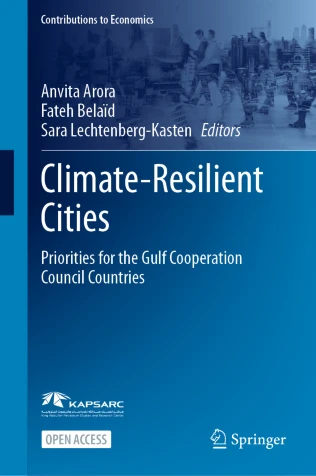Seaports are crucial for facilitating maritime trade and integrating countries into the global economy. Understanding port business dynamics, including trade and the impact on bunker energy demand, is essential for a nation’s competitiveness. Saudi Arabia’s ports are strategically situated at an advantageous location that connects Asia, Africa, and Europe. It is important to study current and future trade and investigate their implications for bunker energy demand. This study used data covering the period from 1991 to 2021 and employed a fixed effects linear model with an autoregressive disturbance to estimate outliers and detect breaks to estimate the compound annual growth rates (CAGRs) of exports. The results provide a rough estimation of future exports from Saudi container ports and the corresponding bunker energy demand up to 2040. We used energy intensity figures and the average export distance between Saudi Arabia and its trading partners for energy estimation. As of 2021, the estimated energy demand was about 28,000 barrels of oil equivalent per day (Kboe/d). Using 2021 as the baseline year, bunker energy demand is expected to increase to 45 Kboe/d by 2040 under the medium growth scenario, with Jeddah and King Abdullah Port (KAP) accounting for approximately 61% of the total demand.

Fellow- Transportation & Infrastructure
Dr. AHM Mehbub Anwar is a fellow at KAPSARC. He currently leads the Energy Decision Model for Maritime, which results…
Dr. AHM Mehbub Anwar is a fellow at KAPSARC. He currently leads the Energy Decision Model for Maritime, which results in research outcomes as well as advisory inputs for the energy ecosystem across the Kingdom. This project investigates future port activity including seaborne trade and fuel consumption in the shipping sector both locally and globally. He also works on the KAPSARC Spatial Urban Energy System (KSUES) project. Prior to joining KAPSARC, he worked in Transport for New South Wales (TfNSW), a state government organisation, as a transport planner, and at the University of Wollongong (UOW) in Australia as a researcher. He led the update on the state of transport in the TfNSW regions as part of the strategic planning for its Future Transport 2056. He has also worked as a lecturer at Khulna University of Bangladesh, and was later promoted to a professor in urban transport planning. He holds a Ph.D. with an examiners’ commendation for an outstanding thesis from the UOW. His thesis focused on modeling travellers’ preference heterogeneity.
Expertise
- Urban sustainable mobility
- Port activity
- Alternative fuels and enerygy efficiency
- Choice modeling
- Future transport strategy at local and national level
Publications See all Ahm Mehbub Anwar’s publications

Future Seaborne Exports and Their Impacts on Bunker Energy Demand: An Estimation of Saudi Container Seaports
Seaports are crucial for facilitating maritime trade and integrating countries into the global economy. Understanding…
22nd May 2025
A Review Approach to Understanding the Current Status of Port Resilience: Lessons Learned for GCC Ports
Seaports are crucial for facilitating maritime trade and integrating countries into the global economy. Understanding…
14th January 2025
